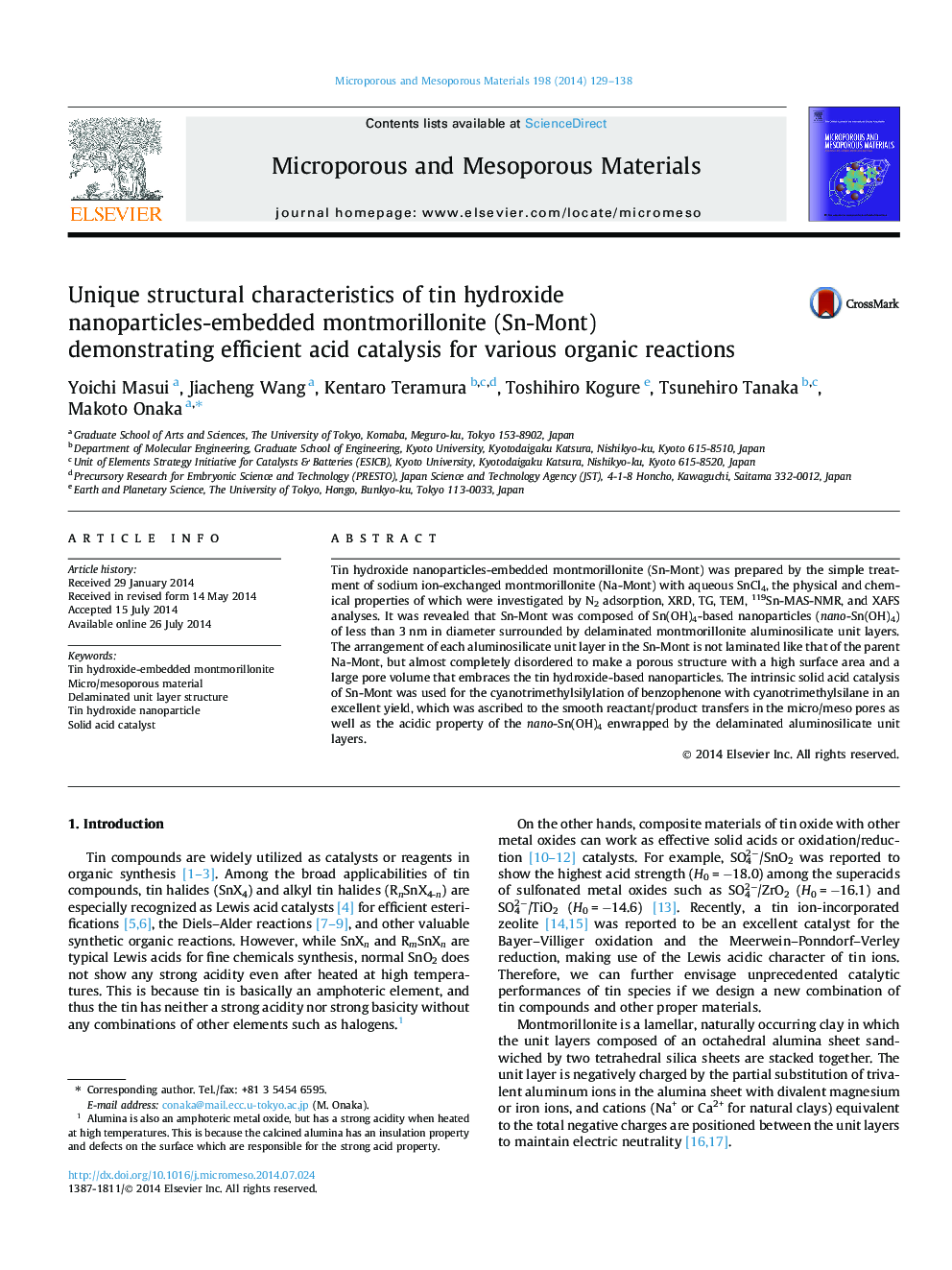| کد مقاله | کد نشریه | سال انتشار | مقاله انگلیسی | نسخه تمام متن |
|---|---|---|---|---|
| 72941 | 49038 | 2014 | 10 صفحه PDF | دانلود رایگان |

• Sn-Mont has quite a different structure and nature from the other M-Monts.
• Sn-Mont is composed of Sn(OH)4 nanoparticles and delamintated silicate layers.
• Sn-Mont has much larger surface area and pore volume than the other M-Monts.
• The unique porous structure of Sn-Mont is suitable for the mass transfer of reagents.
• The unique structure of Sn-Mont is formed through the simple ion-exchange protocol.
Tin hydroxide nanoparticles-embedded montmorillonite (Sn-Mont) was prepared by the simple treatment of sodium ion-exchanged montmorillonite (Na-Mont) with aqueous SnCl4, the physical and chemical properties of which were investigated by N2 adsorption, XRD, TG, TEM, 119Sn-MAS-NMR, and XAFS analyses. It was revealed that Sn-Mont was composed of Sn(OH)4-based nanoparticles (nano-Sn(OH)4) of less than 3 nm in diameter surrounded by delaminated montmorillonite aluminosilicate unit layers. The arrangement of each aluminosilicate unit layer in the Sn-Mont is not laminated like that of the parent Na-Mont, but almost completely disordered to make a porous structure with a high surface area and a large pore volume that embraces the tin hydroxide-based nanoparticles. The intrinsic solid acid catalysis of Sn-Mont was used for the cyanotrimethylsilylation of benzophenone with cyanotrimethylsilane in an excellent yield, which was ascribed to the smooth reactant/product transfers in the micro/meso pores as well as the acidic property of the nano-Sn(OH)4 enwrapped by the delaminated aluminosilicate unit layers.
Figure optionsDownload as PowerPoint slide
Journal: Microporous and Mesoporous Materials - Volume 198, 1 November 2014, Pages 129–138